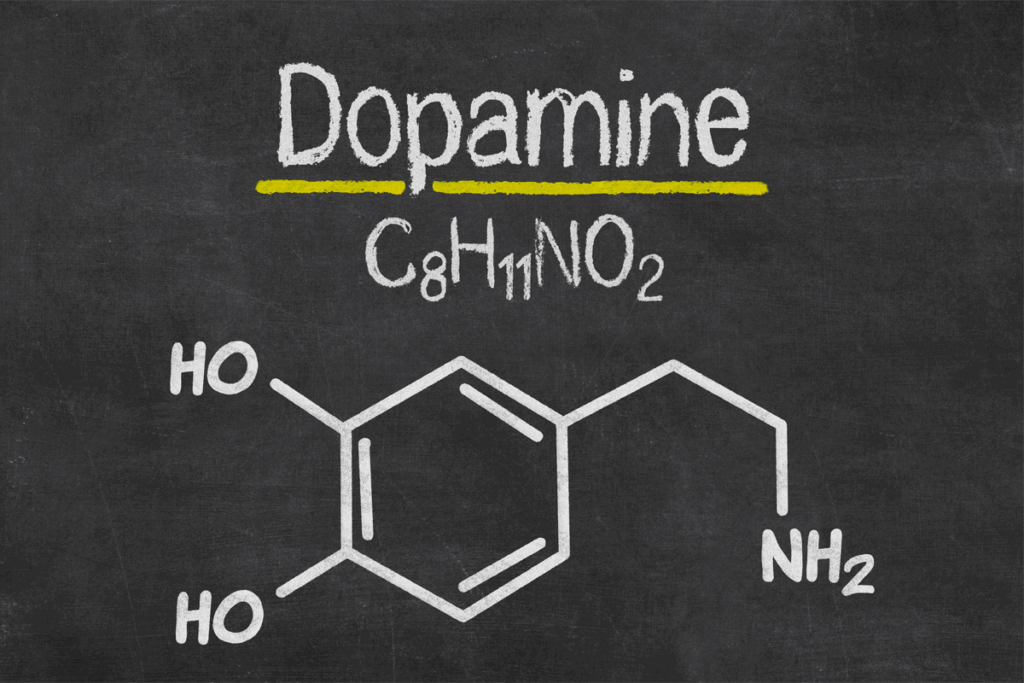Dopamine addiction
Definition
Dopamine addiction refers to the constant pursuit of stimuli that provide a short-lived feeling of pleasure, excitement, or reward. Within BDSM, this can manifest itself in the desire to repeatedly seek out intense experiences, pain, power, or submission, because these feelings cause a temporary spike in dopamine.

Explanation of dopamine addiction
Dopamine is a neurotransmitter – a chemical messenger in the brain – that plays a crucial role in motivation, reward, and pleasure. Every time we do something that makes us feel good, dopamine is released. It is a natural reward substance that encourages us to repeat behavior. In a BDSM context, this can have powerful consequences, because the experience often directly responds to tension, fear, surrender, pain, and euphoria: all strong dopamine triggers.
During an intense session, the body produces not only adrenaline and endorphins, but also dopamine. This cocktail creates the rush, focus, and deep euphoria that many BDSM practitioners talk about. It is that feeling of “everything is right,” in which the world dissolves for a moment. Afterwards, however, that peak subsides, which can lead to an emotional void or drop. Some people then experience the urge to feel that intensity again as soon as possible – the beginning of what we call dopamine addiction.
Stimulus cycle
The addiction is not in the behavior itself, but in the stimulus cycle: tension → release → rest → desire for repetition. Those who reach for the next peak too often or too quickly run the risk of losing the depth of the experience. Sessions are then no longer fueled by connection or growth, but by the craving for chemical excitement. This can lead to impulsivity, dependence on pain or power sensations, or constantly pushing boundaries to feel the same thrill.
Within healthy BDSM relationships, this pitfall is recognized and discussed. After all, the true essence of BDSM lies not in more, harder, more often, but in deeper, more conscious, more real. Dopamine is wonderful as fuel for experience, but dangerous as a steering mechanism. Those who learn to enjoy excitement without constantly chasing peaks discover that true satisfaction lies not in chemistry, but in connection.
Safety & points of attention
Dopamine addiction is a creeping process. It starts innocently, but can lead to mental unrest, obsessive behavior, or losing touch with yourself or your partner.
Recognize the signs: restlessness, boredom outside of sessions, or needing increasingly intense stimuli to feel anything.
Consciously plan moments of rest after intense experiences so that the body can recover.
Ensure variety in play: not every session needs to be focused on peak experiences.
Do not confuse craving with desire – the former comes from restlessness, the latter from connection.
Discuss feelings of emptiness or dependence openly with your partner; shame increases the risk of hardening.
Ensure good aftercare, nutrition, and sleep – this also helps to restore dopamine balance.
Related terms dopamine addiction
Adrenaline
Dopamine
Endorphins
Hormones
Subspace
More information

